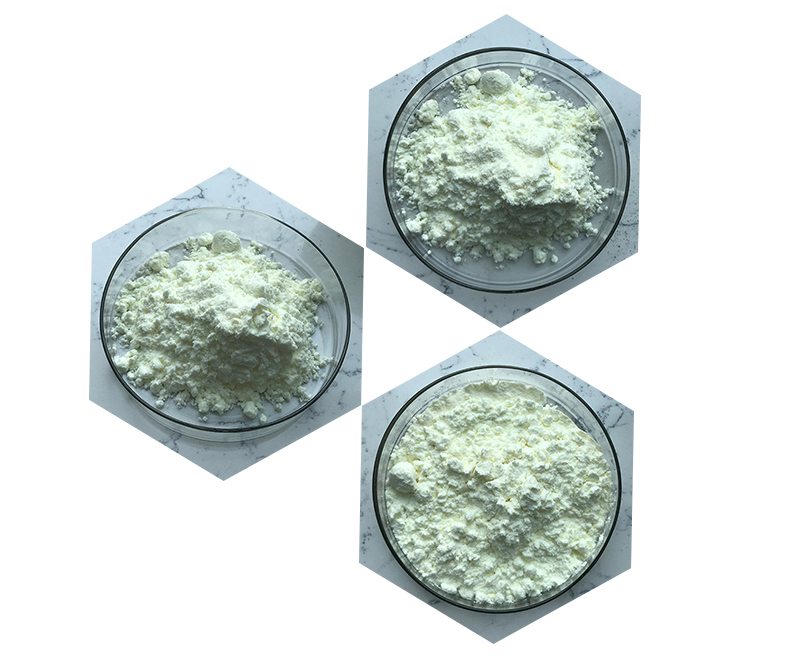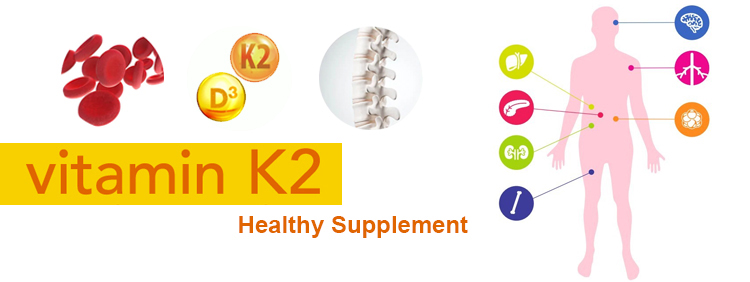Vitamin K2, also known as menaquinone, plays a crucial role in regulating calcium metabolism, promoting bone health, and supporting heart health. It is a fat-soluble vitamin that can be synthesized by certain bacteria in the human gut and is also obtained through dietary sources. Here are the materials and methods related to vitamin K2:
Materials of Vitamin k2:
1.Dietary Sources: Vitamin K2 can be found in various dietary sources, including:
Animal products: Beef, chicken, eggs, and dairy products.
Fermented foods: Natto (fermented soybeans), cheese, and sauerkraut.
2.Supplements: Vitamin K2 supplements are available in various forms, including MK-4 and MK-7, with different dosages.

3.Laboratory Equipment: In a research or clinical setting, you may need various laboratory equipment, including pipettes, test tubes, centrifuges, and spectrophotometers for the analysis of vitamin K2 levels in blood or tissues.
4.Chemicals and Reagents: These may include solvents, reagents, and standards used in laboratory analysis or experiments.
Methods of Vitamin k2:
1.Dietary Intake Assessment: To determine an individual’s dietary intake of vitamin K2, one can use food frequency questionnaires or 24-hour dietary recalls. This is a non-invasive method to estimate vitamin K2 intake.
2.Blood Analysis: To measure vitamin K2 levels in the blood, a common method involves high-performance liquid chromatography (HPLC) or liquid chromatography-mass spectrometry (LC-MS). This allows for the quantification of different forms of vitamin K2, such as MK-4 and MK-7.
3.Tissue Analysis: Researchers may analyze vitamin K2 levels in specific tissues, especially bone tissue, to assess its role in bone health. Tissue samples are typically prepared and analyzed using HPLC or LC-MS.
4.Supplementation Studies: In clinical trials, researchers administer vitamin K2 supplements to study participants to assess their effects on health outcomes. These studies typically involve randomized controlled trials (RCTs) to evaluate the impact of vitamin K2 supplementation on bone health, cardiovascular health, or other relevant outcomes.
5.Cell Culture Studies: In vitro studies on cell lines may be conducted to investigate the mechanisms of vitamin K2 in cellular processes. This involves culturing cells in a laboratory and exposing them to different concentrations of vitamin K2 to observe its effects.

6.Animal Studies: Animal models, such as mice or rats, are often used to study the effects of vitamin K2 in vivo. These studies may involve feeding animals diets with varying levels of vitamin K2 or administering supplements.
7.Meta-Analyses and Systematic Reviews: Researchers may perform meta-analyses and systematic reviews to summarize and analyze the existing literature on vitamin K2 and its health effects. This involves collecting and synthesizing data from multiple studies to draw conclusions.
8.Bioavailability Studies: Bioavailability studies investigate how well the body absorbs and utilizes vitamin K2 from different dietary sources or supplements. This often involves measuring blood levels of vitamin K2 after consumption of specific sources.
It’s important to note that if you are considering vitamin K2 supplementation or have specific health concerns related to vitamin K2, it is advisable to consult a healthcare professional for guidance and monitoring.
